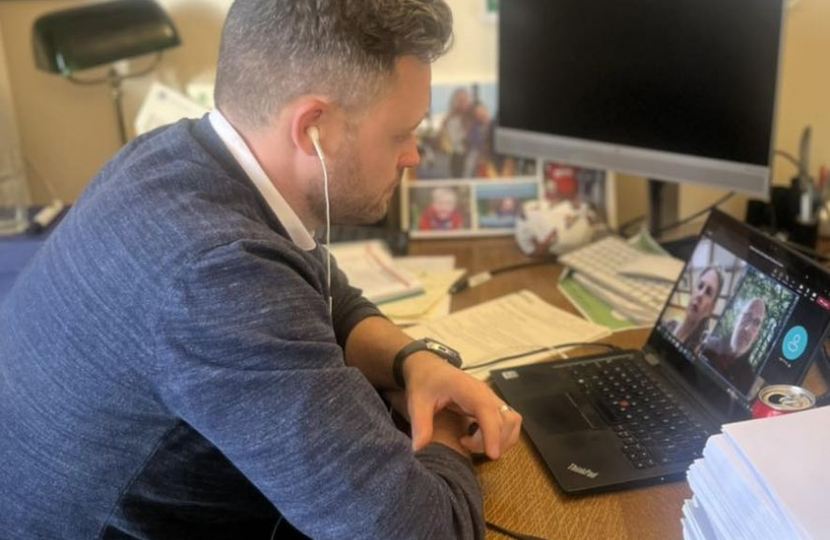
Mr Bradley has long campaigned for equal treatment of men and boys, who are often overlooked by society. Specifically, he has consistently raised issues that urgently need addressing surrounding white-working class boys who are statistically most likely to drop out of school with no qualifications and most likely to commit suicide. Mr Bradley has previously raised his concerns directly with Government by holding a debate on the ‘Education and Attainment of White Working-Class Boys’.
In 2020, Mr Bradley held a debate on International Men’s Day and argued that it is “hugely important” to raise men’s issues. He expressed his concern that the topic is challenging to raise without being criticised “because of the general discourse that so often seems to pervade our society that talks of male privilege, of toxic masculinity, and of men as oppressors rather than positive contributors or role models. Men are talked about, all too often, as a problem that must be rectified.”
This year, ahead of International Men’s Day, the Mansfield MP held a Westminster Hall debate on ‘increasing the number of male primary school teachers’ to highlight the importance of male teachers in a primary school setting. Mr Bradley wanted to “touch on the impact of the issue on our young people and young boys, and on their mental health and stability”. He argued that “At a time when masculinity and being a man can be portrayed very negatively, and young men increasingly find it hard to figure out what their role in life and in our society might be, leading to all sorts of mental health problems, which I am sure we will discuss over the course of this week in the build-up to International Men’s Day, it has never been more important for them to have a consistent, respectable male role model they trust in their life.”
The Mansfield MP, a vocal critic of equalities legislation, touched on the misuse of the Equality Act 2010 when it came to the issue of male primary school teachers. He argued that the “intention behind the law is that the exact same legislation that is cited in order to support young women into science, technology, engineering and maths subjects, where they are historically under-represented, and into university—even though today’s figures show they are over-represented”. He raised his concerns that he had previously been informed by Education Ministers that there are no schemes aimed at supporting young men to get into primary teaching and expressed his frustration that the Equality Act 2020 is “almost never interpreted” in a way to support men into professions where they are under-represented, despite the law existing to tackle biological sex – both male and female.
In an article in 2022, Ben Bradley MP stated:
In the UK, just 14% of primary and nursery teachers are male. When we then look at schools themselves, 3,240 primary schools in the UK have no male teachers on the payroll at all.
It’s my firm belief that getting more male teachers into our schools, especially in primary and early years settings where the figures are worst, is crucial to ensuring that boys and young men have aspirational, positive figures to learn from.
The East Midlands is the most unequal picture. A third of state schools in the region do not have a single male classroom teacher – the highest level of disparity in the country.
That’s thousands in the East Midlands and potentially over a million children nationally who don’t have a single male role model in an education setting. This is worrying, when we already know that nationally we have 2.5 million kids growing up without a father figure at home. We have 30,000 children being exposed to some form of domestic abuse. Where do these kids learn about positive male behaviours and relationships?
In these situations it’s even more crucial for these boys to grow up with at least one positive male role model in their lives, not least so they can emulate positive behaviour and develop traits that are constructive to not just themselves but also to others around them, such as in their relationships with women. Where do our boys learn to be men, if they aren’t surrounded with good examples?





